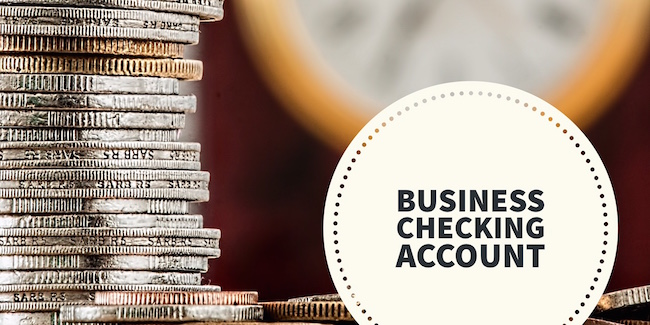Whether you are at the beginning of a new business journey or are looking to make some business finance upgrades, it is important to ensure your bank accounts are optimized for your needs. To do that, you need the right business checking account.
Here are some criteria to choose the best checking account for your business needs.
Table of Contents
ToggleServices offered
The first place to look when choosing a new bank account is the basic services offered. That includes both in-branch, online, and other services.
In-branch, you should be able to deposit cash and checks, make cash withdrawals, and get cashiers checks if needed. You should also have easy access to customer service and support, an ATM, and other basic banking services.
Online banking is the core of financial operations for most businesses that are not cash based. With online banking, you should be able to view balances and recent activity, initiate transfers to other accounts at the same bank and other financial institutions, access online bill pay, and depending on the needs of your company manage employee debit cards — more on that in a minute.
In addition to regular banking needs, you may want your business accounts at the same bank as your personal accounts. This gives you access to mortgages, lending, and related services. It is up to you if you’d like to keep everything in the same place or spread out your accounts to various banks. Each method has its own pros and cons, but there is no right or wrong answer.
Monthly maintenance fees
Once you find a few banks with the services you need, it is time to turn to the fees. Business banking fees range widely from free to thousands of dollars per month. As your business becomes more complex, it is reasonable to expect some fees. However, you can limit those fees and keep them as low as possible choosing the right bank and checking account.
The best bank accounts charge no fees for basic banking needs. For example, Spark Checking from Capital One 360 is a no fee business checking account that allows you to do all of your banking online. Capital One 360 does not offer an in-branch experience, however, so this may be too limiting for some businesses.
Most larger banks offer checking accounts with a monthly fee, but that fee can be waived under the right conditions. For example, the basic business checking account at Chase has a $15 monthly fee, but that fee is waived if you keep at least $1,500 in an account at all times.
Cash and transaction limits
Some banks offer a no fee experience up to certain transaction limits, be sure to lookout for those types of limits when opening a new account at any bank or credit union.
The most common limit to run into is a cash deposit limit per month with no fee. This makes sense, as depositing cash requires a teller and is cost intensive for a bank branch. The fee is typically based on the total dollars deposited per month.
The next set of fees you’ll run into is a limit of total deposits or withdrawals, including online transfers, bill payments, and deposits from 3rd party credit card processors like Stripe. Your transaction volume can add up fast if you make a lot of sales each month, so lookout for low limits.
As a freelancer or online solo entrepreneur, you typically shouldn’t be paying any fees for your basic banking needs.
Flexible debit cards
If your business has only one employee and will always have one employee, you can skip to the next section. However, if you ever expect to add anyone other than yourself to your business, it can make sense to give them a debit or credit card as well. Credit cards are more common for a variety of reasons, but that doesn’t mean your bank account should limit your options.
Most banks and credit unions that cater to businesses give you the flexibility to add additional cardholders and choose a cash advance and purchase limit for those cards. This ensures that your employees can buy what they need to do their job, but won’t walk away with the contents of your bank account never to be heard from again.
Some banks charge for this feature, and some banks don’t offer it at all. If you think you may need to add employee debit cards in the future, make sure you can do that while keeping your business financial security at the forefront.
Easy integrations
Once your business bank account is up and running, it needs to work with your accounting and budgeting software and any other services you choose. The most common of these services is Quickbooks, but there are other financial systems to think about as well, such as invoicing and bill payment through Due.com.
Whatever services you use, the ability to send and receive unlimited ACH transfers is helpful, particularly for online businesses.
Use common sense choosing your bank
At the end of the day, most business checking accounts are fairly similar. What sets them apart is the financial institution that offers them, the services they offer, and how you plan to use your account. If you just want to run a small, solo business, a local bank or credit union is probably fine. However, if you see yourself at the helm of a unicorn startup in just a few years, make sure to choose a bank that can scale with your needs.
Your business’ success or failure is determined by its financial performance, and a business checking account is the core of any business’ finances. If you make a good decision, you’ll be free to focus on running your business instead of running your bank account. That is something any business owner can appreciate.
















